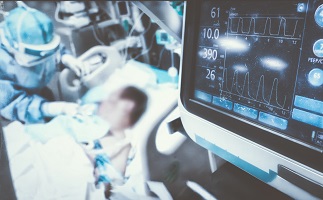April 2021 News Roundup
This month features HF patients leaving hospital against medical advice, COVID-19 and valve disease, a new MitraClip, and more.

Every month, Section Editor L.A. McKeown curates a roundup of recent news tidbits from journals and medical meetings around the globe.
A look at trends in medication prescribing for newly-diagnosed atrial fibrillation (AF) shows that flecainide and amiodarone are the most common in the United States (26.8% and 22.5%, respectively). Reporting in the Journal of Cardiovascular Electrophysiology, researchers found that by 2 years after diagnosis, 22% of patients in the study sample had undergone ablation, with 79% discontinuing antiarrhythmic therapy after the procedure.
Data from the Get With The Guidelines-Heart Failure registry indicates that one in 64 patients hospitalized for heart failure (HF) leave against medical advice. Writing in the Journal of Cardiac Failure, authors say strategies are needed to identify those at risk for doing so, with a focus on interventions to support patients who leave.
 The combination of severe valvular heart disease and COVID-19 infection increases the risk of poor clinical outcomes and death, data from the international, multicenter COVID-19 Valve Disease Registry show. “In addition to strict conventional measures to prevent infection in high-risk patients with valvular disease, valve repair or replacement in appropriate patients should be considered before possible infection and even during the infection,” researchers advise in a paper published by Structural Heart.
The combination of severe valvular heart disease and COVID-19 infection increases the risk of poor clinical outcomes and death, data from the international, multicenter COVID-19 Valve Disease Registry show. “In addition to strict conventional measures to prevent infection in high-risk patients with valvular disease, valve repair or replacement in appropriate patients should be considered before possible infection and even during the infection,” researchers advise in a paper published by Structural Heart.
A new viewpoint document in the European Heart Journal offers updated therapeutic insights on how best to treat TAVI candidates based on patients’ presence or absence of oral anticoagulation indications and recent coronary stenting.
 A persistent vagal reaction secondary to pulmonary vein cryoablation may have been responsible for a case of profound circulatory collapse in a 76-year-old patient with symptomatic paroxysmal AF. In European Heart Journal Case Reports, the British team who managed the patient describe their approach and how the case was resolved.
A persistent vagal reaction secondary to pulmonary vein cryoablation may have been responsible for a case of profound circulatory collapse in a 76-year-old patient with symptomatic paroxysmal AF. In European Heart Journal Case Reports, the British team who managed the patient describe their approach and how the case was resolved.
Swedish researchers say adding HDLanti-inflammatory capacity to an individual’s Framingham score may improve prediction of CV event risk in the general population. Published in Circulation, the study found that HDL anti-inflammatory capacity had prediction abilities independent of HDL cholesterol and HDL cholesterol efflux capacity.
An early experience of 61 patients treated with the MitraClip G4 system (Abbott) at multiple centers in the United States found a high procedural success rate of 96.7%. Additionally, significantly fewer clips were needed per procedure compared with the third-generation MitraClip system (P = 0.023), the investigators conclude in Catheterization and Cardiovascular Interventions.
 Morbidly obese patients present unique challenges in the cath lab, sometimes exceeding the weight limits of the angiography table. A communication in JACC: Cardiovascular Interventions describes how one cath lab team devised an off-loading technique in which a stretcher at a 90-degree angle to the table was used to support part of an obese STEMI patient’s body, allowing a successful radial PCI to be performed.
Morbidly obese patients present unique challenges in the cath lab, sometimes exceeding the weight limits of the angiography table. A communication in JACC: Cardiovascular Interventions describes how one cath lab team devised an off-loading technique in which a stretcher at a 90-degree angle to the table was used to support part of an obese STEMI patient’s body, allowing a successful radial PCI to be performed.
A year-long study of pulmonary embolism response team (PERT) activations suggest that patients treated through this pathway are more likely to receive advanced therapies and less likely to die or be readmitted compared with non‐PERT patients. The findings further suggest that abnormal vitals and right ventricular strain may be predictors of greater likelihood of benefit from advanced therapy and consideration for PERT activation.
In a special article in the European Heart Journal, opposing viewpoints dissect the implications of the highly controversial ISCHEMIA trial. Both groups show how the results can be interpreted in different yet complementary ways to support pro-revascularization and pro-conservative management strategies for patients with angina.
L.A. McKeown is a Senior Medical Journalist for TCTMD, the Section Editor of CV Team Forum, and Senior Medical…
Read Full Bio




Comments